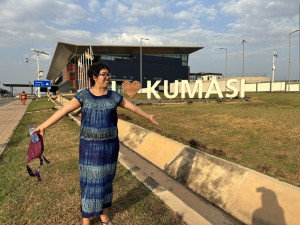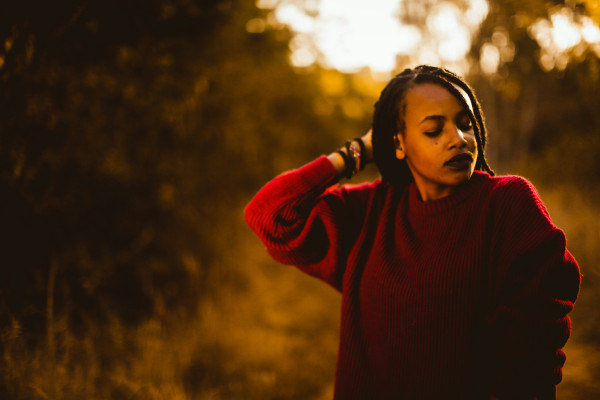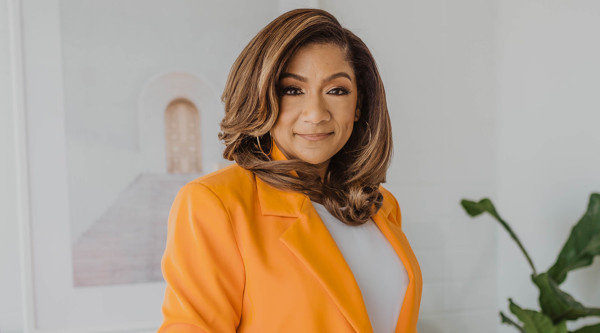My workload was doubling while my teammates remained static, and as the only Black woman on the team, I felt its weight disproportionately. I hesitated to push back, afraid of being labelled incapable or unsupportive. But the resentment was building—why was I always the fallback?
Then, as if reading my conflicted thoughts, my boss patted me on the back and said with a smile, "You’re a strong Black woman. I know you’ve got this."
Regardless of the intent behind the words, the impact hit me like a slap. Far from empowering, the comment erased my fatigue, anger, and humanity. It reduced me to a stereotype, suggesting I should silently bear the burden.
I’ve been reflecting on the unspoken expectations that came with the praise about being a “Strong Black Woman”: to endure, to give endlessly, and to sacrifice my personal well-being for the "greater good." But for whose good?
Living in survival mode is an all-too-familiar story for Black women. It’s a narrative shaped by systems and societies that often demand more from us than they offer in return. Over the years, I’ve learned that constantly running on empty isn’t sustainable. Rest isn’t a luxury; it’s a necessity, and this became explicitly clear when I worked in an uncompromising Big Tech organization.
It was during yet another hectic workday with back-to-back meetings, deadlines looming, and endless to-dos when out of nowhere, itchy red hives started spreading across my arms. Despite never having experienced this before, I kept telling myself, “Just power through until lunch. You’re strong, you’ve got this.” But my body had other plans. The hives began to spread, my chest tightened, and my breathing quickened. Stumbling into the washroom, I felt as if I couldn't breathe. “What's happening?" I asked out loud. It was only when I woke up in the first aid room, I was given an answer. I'd had my first panic attack and fainted.
Sleepless nights spent worrying about work, not speaking up when the workload was too heavy and suppressing my emotions for fear of being judged led to this. My body had been silently screaming at me for months, and I felt ashamed that things had to drastically escalate for me to listen. While it hasn’t always been easy to put into practice, since that day, choosing rest has become an act of reclaiming my well-being and recognizing that no task, job, or accolade is worth sacrificing myself for.
This realization became the foundation of Babes Seeking Balance, the community I founded in September 2024 as a meaningful birthday gift to myself and an impactful gift to other Black women searching for spaces where we can thrive through rest, balance, and joy in communion with our sisters.
{https://www.instagram.com/p/DDBb27SMzBE/}
Creating Babes Seeking Balance was my way of embracing rest as the revolutionary act it is—a defiant choice to prioritize my well-being and encourage other Black women to do the same.
According to Dr. Akwatu Khenti, “Historically, sleep and rest deprivation has been intrinsic to the Black experience in the Western hemisphere.”
Khenti is an affiliate scientist at CAMH (Canadian Association of Mental Health) and an associate professor in The Dalla Lana School of Public Health at the University of Toronto. He explains that sleep deprivation was a feature of dungeons and slave ships in Africa and life on Caribbean and American plantations. He says that after emancipation, lack of sleep shaped the lives of Black men who worked on trains as sleeping car porters and Black women who worked as domestics.
He says that today, Black people sleep 38 minutes less per night than white people and suffer most from sleeping disorders such as insomnia and sleep apnea.
When I used to operate in hustle mode, in between juggling demanding projects and trying to meet everyone's expectations, I rarely got a good night's sleep. Physically, the headaches and muscle tension, particularly in my neck and shoulders, were relentless. My immune system unsurprisingly took a hit, too, as I struggled to shake the increasing number of colds I was catching. The most challenging symptom, however, was the mental and emotional fatigue. My anxiety often felt unbearable; my emotions were all over the place, to the point where slight irritability could result in tears, and experiencing joy or feeling like I was productive was near impossible when I was exhausted.
When I finally learned my lesson, it became clear that sacrificing sleep for short-term gains was a trade-off that was damaging my health, happiness, and ability to perform. I’m not alone in this realization. A cultural shift is happening within our community, with more of us rejecting the hustle-and-burnout narrative and reclaiming rest as a right, not a reward that only comes after excessive productivity.
{https://www.instagram.com/p/DA2RNmYMtUM/?hl=en}
Starting a community with Babes Seeking Balance was my way of holding myself accountable while offering other Black women a safe space to rest, rejuvenate, and connect in an empathetic environment. Our first event was held in September 2024 and each month since has been incredible moments of reflection and empowerment. Seeing women gather, share their stories, and prioritize themselves was a reminder that we are capable of so much when we first pour into our own cups and have support.
As Dr. Joy Harden references in her book Sisterhood Heals: The Transformative Power of Healing in Communion, “Rarely, if ever, are any of us healed in isolation. Healing is an act of communion.” When I look at Babes Seeking Balance, I see more than a community—I see a movement. Our gatherings are designed to remind us that rest, whether active or passive, is a gift we all deserve. Dr. Joy reinforces, “Our relationships with our girls are not placeholders. They are significant relationships worthy of the same care, attention, and intention we extend to other relationships in our lives.” From our intentional discussions to mindful activities or nostalgic game nights to learning new skills in unison, Babes Seeking Balance events allow us to pour back into ourselves.
I’ve been inspired by other Black women who embody the practice of rest as a form of self-preservation. Women like Eyitemi Popo, the founder of Girls Trip Tours, transformed her relationship with rest after being diagnosed with an autoimmune disease. Eyitemi shared with me how her diagnosis forced her to rethink everything. “Creating a life that supports rest is crucial to managing my health and mental well-being,” she told me. "Relocating to Kenya, where the food and environment naturally reduce my stress, has been a game-changer."
{https://www.instagram.com/p/C-QttU8stLq/}
Whether it’s a late morning in bed, a home massage, or a restorative nap, Eyitemi says, “Rest is not just an afterthought but a central part of my lifestyle. My experience taught me the importance of curating an environment that supports my well-being, where rest is not just possible but prioritized. I constantly remind myself and the women on our Girls Trip Tours that this is what we deserve.”
I’ve also been moved by the journey of Eman Idil, a lawyer and former journalist who describes herself as a “recovering workaholic.” Eman’s commitment to rest emerged from a breaking point during the pandemic. "I realized my career could wait, but my health and well-being couldn't." Her decision to delay taking the bar exam to focus on her health was a bold act of self-care. “When you are rested and connected to yourself, you are harder to exploit and mistreat,” she said—a truth that resonates deeply with me.
{https://www.instagram.com/p/DCCs0QdS6vi/?img_index=1}
Her wellness routine, which includes acupuncture, pilates, and consistent sleep, underscores the idea that rest is foundational, not optional. “A well-rested woman knows her worth,” she told me, adding, “These days, I determine my activity level by how well-rested I am,” a tactic I now employ as I continue to shape my own rest practices. She concluded, “When looking at how my ancestors or my relatives currently living in East Africa, no one is asked to take on as much as we are expected to take on in North America. Exhausting ourselves isn't a "tradition" it's immigrant survival,” a truth I believe many of us forget when caught up in the rat race.
Then there’s Kimberly Knight alongside her business partner Shanelle McKenzie, co-founders of The Villij, a wellness studio for women of colour. Kim’s story is one of unlearning hustle culture—a familiar journey for many of us who grew up in immigrant households. "When you grow up in a household where folks are hustling to make ends meet, rest is not prioritized," she reflected. "Once I burned out, I realized it couldn’t work for me. I had to unlearn what I’d been taught."
{https://www.instagram.com/p/Czg4QPvr29z/}
Kim continues, “I cannot build a wellness studio where I’m making room for women to take care of themselves if I’m not doing the same.” Her approach to and understanding of rest is much different now, "It’s more than physical," she emphasizes, "It’s about setting boundaries, being intentional, and creating space for joy." She adds, “We often think about sleep as an action that we’re just going to switch gears and do when the reality is we need to prepare our minds and bodies to sleep proactively. This looks like knowing how long it will take to adapt to no longer operating in thinking and working mode.”
Rest Is Revolutionary
Through these stories and my own journey, one thing has become clear: rest isn’t just recuperation—it’s resistance over oppressive power structures and the foundation of good health. Sleep and our emotional well-being share an intimate relationship, and there is overwhelming evidence that poor sleep serves as a direct catalyst for the development of emotional, mental, and physiological difficulties across the lifespan. Researchers have found that all three types of sleep—sleep deprivation, sleep restriction, and sleep fragmentation—result in fewer positive emotions such as joy, happiness, and contentment, as well as increased stress and anxiety symptoms, including a rapid heart rate and increased worrying.
For Black women, resting is a way to reclaim our time, our worth, and our humanity in a world that often undervalues us.
As we reflect on the year that’s passed and prepare for the one ahead, let’s commit to resting more, not less. Let’s unlearn the narratives that tell us we have to earn our rest and embrace the truth that we are worthy just as we are.
Your best self is waiting—and she’s well-rested. Let’s make sure we show up for her.
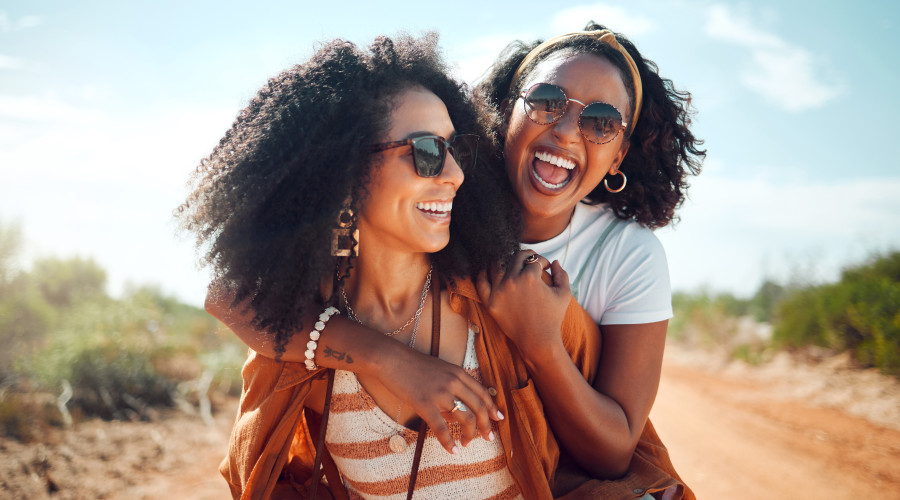
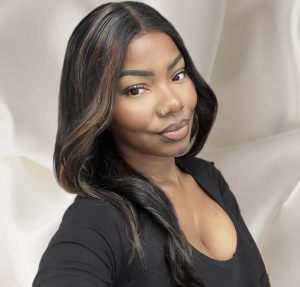 By
By 





